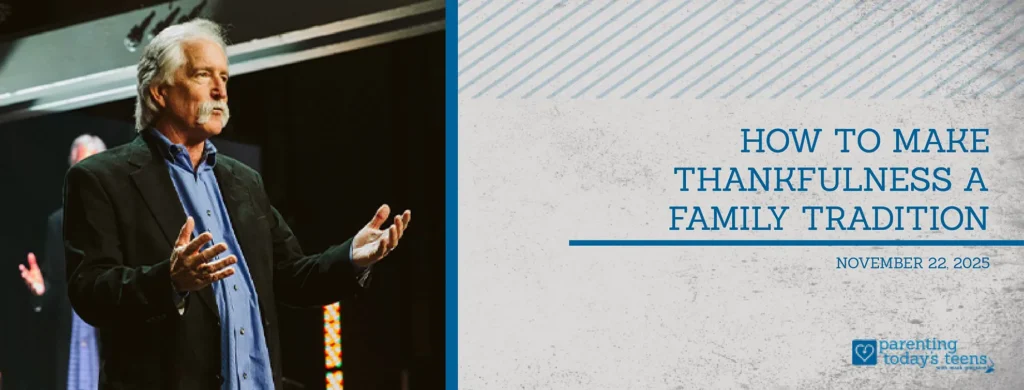Let’s be honest—teenagers can be tough. They’re not always easy to like, and at times, they can seem downright unapproachable. But the truth is, parents can be just as challenging. If you’re finding it hard to connect with your teen, there may be a few hidden barriers standing in the way of a deeper relationship.
The good news? It’s absolutely possible to strengthen that bond. In this article, I’ll share time-tested strategies to help you break through the walls that might be creating distance. Let’s begin by exploring four common relationship barriers—and how you can overcome them to reconnect with your teen.
Misunderstanding What’s Really Going On
It’s easy for parents and teens to misread each other. What feels like defiance or drama on the surface may actually be a signal of something deeper going on beneath. Here are a few common ways misunderstandings can form—and what to watch out for:
1. Focusing only on the behavior, not the cause.
When teens act out—whether through rudeness, rule-breaking, or pushing limits—it’s tempting to jump straight to discipline. But behavior is often a symptom, not the root issue. Your teen may be feeling overwhelmed, unheard, or unsure how to express what’s really going on. Addressing the why behind the behavior can open the door to understanding and healing.
2. Making assumptions instead of asking questions.
It’s natural to lean on past experience and assume you know what your teen is going through—“It’s just a phase,” or “They’re overreacting.” But your teen’s inner world may be more nuanced than you realize. Making assumptions can quickly shut down meaningful conversation. Instead, ask questions with genuine curiosity, and be open to hearing their perspective without jumping to conclusions.
3. Missing the moment when they do open up.
Teens rarely talk when it’s convenient. Often, their most honest moments happen late at night, in the car, or while you’re juggling something else. It’s easy to miss these moments if you’re distracted or focused on solving the problem too quickly. Instead of rushing to fix, pause and really listen. Being fully present in these unexpected moments can help you uncover what’s truly going on in your teen’s heart.
How to break this barrier:
Make a conscious effort to truly listen to your teen—and approach their experiences with compassion. Set aside uninterrupted time to connect, free from distractions like your phone, work, or other family members. When your teen opens up, resist the urge to correct, critique, or offer instant advice. Instead, ask open-ended questions like, “What was that like for you?” or “How did that make you feel?” Then pause—and really listen. Sometimes, the most powerful thing you can do is simply be present and let your teen know they’re seen, heard, and understood.
Overly Strict Rules
Sometimes, in an effort to maintain control or prevent mistakes, parents unintentionally build walls instead of bridges. When rules take precedence over relationship—when the focus is more on strict enforcement than understanding—teens can feel stifled, not supported. While structure and boundaries are important, overly rigid or unreasonable rules often lead to fear-based compliance, not genuine respect or trust. Over time, this approach can drive a wedge between you and your teen, making it harder for them to come to you when they truly need guidance. Instead, prioritize connection over control. Teens still crave warmth, empathy, and relationship—even when they’re testing the limits.
How to break this barrier:
Aim to create rules that guide your teen toward growth—not ones that shame or overwhelm them. Be mindful of rules that serve your own comfort or convenience more than your teen’s development, and avoid setting expectations so high they’re impossible to meet. When teens are held to unattainable standards, they’re not just discouraged—they’re set up for failure and frustration.
Instead, ensure your rules align with your family’s core values. They should be clearly explained, consistently enforced, and paired with consequences that are fair and constructive—not punitive or spirit-crushing. Take time to reflect on the why behind each rule. Ask yourself: “Is this helping my teen grow into a capable, responsible adult—or is it just making things easier for me?”
Be willing to reevaluate and adjust non-essential rules as your teen matures. Flexibility isn’t a sign of weakness—it shows your teen that you see and respect their growing independence, and that the relationship matters more than rigid control.
Expecting Perfection
Perfectionism is a quiet but powerful relationship killer. In many families, it shows up as constant correction—where teens feel like nothing they do is ever good enough. This barrier can take several forms: parents who hide their own mistakes to maintain a flawless image, who overreact when their teen messes up, or who respond to failure with shame instead of grace. Over time, this pressure to be perfect sends a damaging message—that love and acceptance are conditional. Teens raised in these environments often internalize that pressure, becoming overly self-critical, anxious, or even defiant. In either case, the relationship suffers, and the opportunity for authentic connection is lost.
How to break this barrier:
Foster an atmosphere where imperfection is not just accepted—it’s expected. Start by modeling this yourself. Let go of the pressure to appear flawless, and instead, be open about your own mistakes and what you’ve learned from them. When you normalize failure as a part of growth, you create a safe space for your teen to do the same.
When your teen inevitably messes up, resist the urge to lecture or express disappointment. Instead, approach the moment with curiosity and empathy. Try asking, “What do you think happened there?” or “What might you do differently next time?” These questions encourage reflection and responsibility without shame. Remind your teen—both in words and in how you respond—that mistakes aren’t the end of the world. They’re stepping stones toward maturity and resilience.
Discipline Without Relationship
Discipline alone does not motivate teens to change their minds, hearts, or behavior. When teens feel like there’s no real personal connection, they have little motivation to respect your rules and values. If you are relying on your authority as the parent, your threats of punishment, or guilt trips to change your teen without investing in the relationship itself, you will be disappointed. Teens change because of relationships, not rules.
How to break this barrier:
Spend time together! It’s the things you do and the time you spend together that will change you and your teen. So make your relationship the priority over perfect behavior. Create regular opportunities for connection—whether that’s going out for coffee, taking walks together, or just hanging out.
When discipline is necessary, make sure your teen knows it’s their behavior you disapprove of, not them as a person. Never discipline out of anger, or a knee-jerk reaction, rather than thoughtful consideration. Avoid using punishment as the primary tool for shaping behavior, instead of guidance and your example. As the saying goes: “Rules without relationship lead to rebellion.” But when the relationship comes first, teens are much more likely to respect the boundaries you set.
Conclusion
Parents can be just as unlikable as teens. While these strategies are helpful on a practical level, many parents also find that a deeper heart-level change begins with self-reflection and spiritual humility. If a parent desires to have a deeper relationship with their teen, the best place to start is by looking at the log in your own eye rather than staring at the speck in the life of your teen.
This is where a little bit of self-reflection can change the direction of your family. Ask the Lord to search your heart, to look at your ways, and share how your actions or habits are hurting your relationship with your teen. The best place to start is with you. Your admission of your shortcomings, your mistakes, and your mess-ups may just be the first step to getting that deeper relationship with your teen that you both want––not to mention the example of humility they need.






